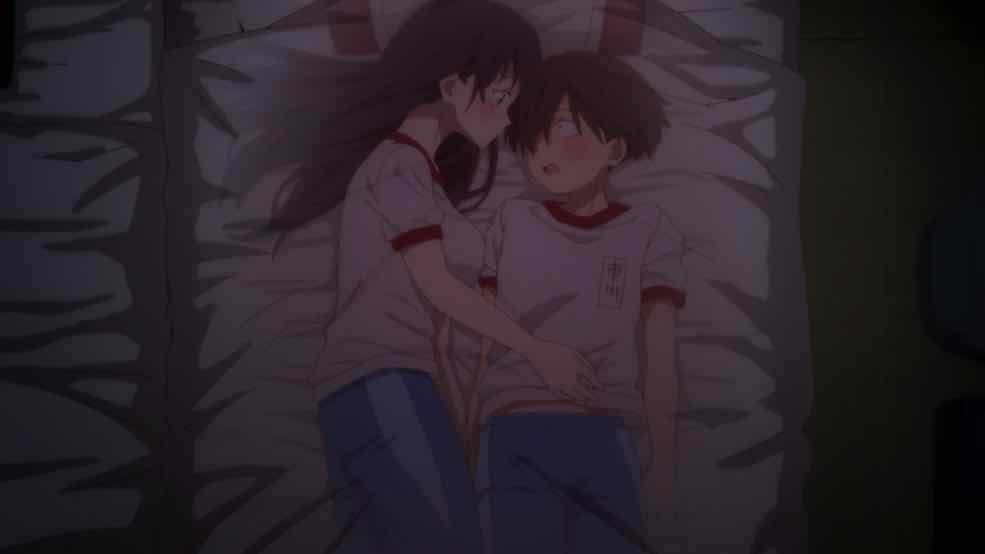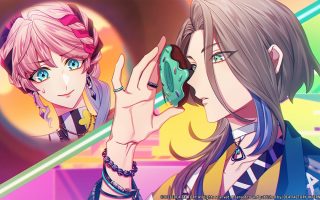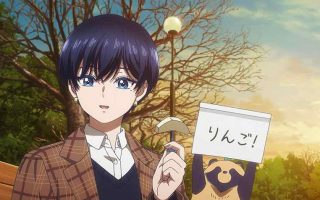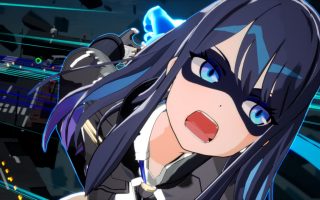It’s hard to start a post like this (not that there are many posts like this) when I have so many thoughts and emotions bubbling around inside me. I have no choice but to use the title I did, first of all. I have sincere hopes for more anime but it can’t be called a sure thing at this point (we’ll get a clue soon with the S2 Blu-rays going on sale this week, and the tenth volume of the manga next month). Nothing the anime did suggests or precludes anything, and we’re a couple of years away from there being enough source material to even consider it anyway. That reality alone makes this a tough experience for me emotionally, though having the manga does soften the blow.
As regards the content of the final episode, one can’t talk about that without addressing Episode 12. They were effectively one long narrative and the adaptation did move some things around and add some things. But the sum total of it was close enough to perfect so as not to matter. This ending was 100% faithful to the manga in substantive terms. What the changes did was give the events of this ep even more weight (which I think manga readers would have guessed was impossible). And that makes sense – this was a final episode (for now at least). When Norio-sensei wrote this material she had another chapter coming in two weeks.
Akagi Hiroaki has now adapted two of the best middle school romcons ever (with two different writers, though both industry stalwarts). And he – and Shin-Ei – have absolutely nailed it both times. His task was much different with Boku no Kokoro no Yabai Yatsu than with Karakai Jouzu no Takagi-san. It goes beyond just a very good source material vs. a historically great one. Takagi-san is an episodic, gag-driven manga that needed a lot of flesh on its bones to be as good an anime as it was. BokuYaba is probably the greatest teen romcom ever, and what it needed was Akagi’s stewardship. And happily, it could hardly have been in better hands (which is why I suggested that partnership as soon as the anime news was leaked).
A lot of the power of BokuYaba, in addition to simply great writing, comes down to this: great romances come in all shapes and sizes, but there’s nothing quite as special as when two high-maintenance people find the ideal parter. These two are as good as romcom protagonists get. They’re flawed, they have weaknesses, they struggle with many aspects of daily life. But their struggles are very different, and they complete each other in a very profound and beautiful way. To be blunt, they’re both a mess. And most of us who are don’t get that lucky. Norio wrote a story about two who do, in order to give all of us hope. Her words after the finale:
“This work started with the idea that it would be great if something like this were happening somewhere in the world. I would be happy if it could bring a little light to Ichikawas and Yamadas all over the world.”
Anna is a dog (by personality), but her description of what kind of boy she likes – “a guy who’s cat-like” – reflects an unconscious self-awareness, I think. The whole “trapped in the girls’ room” scene is classic Norio hijinks, but when Anna starts asking heart-to-heart questions under the blanket it goes from the ridiculous to the sublime. One little change here is the reason for Anna’s startlement – in the manga it’s very clearly caused by her sudden awareness of Kyou’s physical reaction, but I guess that was felt to be too strong for the anime. In the end it’s Kanzaki-kun (what an idiot he can be, truly) that saves the day. And that won’t be the last time…
This is clearly not the environment for the conversation which Kyoutarou knows must be had. That comes the next day at Fushimi Inari, where Kankan (kon, kon) is still on the hunt for teen lives to shatter. Anna is still overcompensating at a professional level, literally masking her true feelings. Ichi can’t let this go on, both because he loves her and because he’s fundamentally unselfish as a person. The torii gates, the mask, the sunset – this is probably the most famous scene in the manga for good reason. It speaks for itself, and nothing much here is changed from the source material.
To me, what’s important is that Kyoutarou realizes that the way to become a better partner is to better love himself. Again, the reason why this series stands apart from pretty much every romcon out there is that it’s equally as brilliant as a story of personal growth. And it understands that the two sides of its nature are inseparable, just as with Kyou’s growth. He can’t be a proper boyfriend for Yamada until he accepts himself for who he is, flaws and all. And the reason he’s able to do that is because he’s her boyfriend. The love and support she’s given him has allowed him to move past the relentless beating he’s given himself since “1503”, and start to see the beauty in the world around him. Primarily in her face, but everywhere else too.
The anime does more to make this point clear than the manga does, with the insert use of the ED and the recollection of scenes from Ichi’s journey. But again, that’s as it should be – this is not the manga, where that journey continues in two weeks. It has to deliver a finale without closing the door on an eventual sequel, and it manages to strike that balance pretty much perfectly. Ultimately Kyou has to take what he’s learned about himself and turn it into strength, so he can send Anna away. That hurts him, but it’s what’s best for her. So he does it, because he’s Ichikawa Kyoutarou, the best MC in romcom and one hell of a guy.
In the anime, Kobayashi gets a moment here too (I love how she ran three feet so she could use the crosswalk). And as in the manga, Kenta and Honoka take on for the team (the team being Anna and Ichi). And Hara-san tells Kankan to her face to back the hell off, because Hara-san never shies away from what needs to be said or done and Kanna really needs to hear it. Anna heads off to the station with Kyou’s blessing, and he returns to the rest of his class trip. And his friends, like Aizawa-kun, with whom he can have a schoolboy interaction (not involving dicks) without a trace (well, an excessive amount) of self-consciousness.
The aftermath of the trip (in Anna’s case both trips) is handled in broadly the same way here as in the manga. There’s a bit more of a retrospective focus (as there should be – see above) as Kyoutarou searches for “the usual place” from her LINE, but it could really only be the library. There’s an imbalance between them after Fushimi Inari – Ichi has made his declaration and Anna has not. He knows of course, but there are things which must be said – and heard. And she ups the ante in fact, adding the “dai” to his “suki” from two days earlier. And as he did in Kyoto, she lets Kyoutarou know that the reason she’s able to say what she did is because he helped her see what she needed to see in herself.
I’m glad the kiss scene was handled exactly as Norio handled it. Adorably awkward and tense, ending with a peck on the cheek. Because a full-on kiss at this point in the story would have suggested a finality I did not want to see, but also because it wouldn’t have felt organic to the relationship – it’s a little too soon. There’s plenty of time for them to grow into that and a world else besides, both as individuals and as a couple. Having the first season OP “Sayou” play over the end credits was the perfect way to tie a ribbon on the adaptation, a way to bask in glory of the achievement both by Norio-sensei and by Akagi and the team who did her masterpiece proud.
For me, the emotions at this moment are obviously mixed. I adore the manga beyond all sense of reason, and I urge everyone who doesn’t do so already to read it. This story never stagnates, Ichi and Anna never stop growing and changing, and it happens in a natural and believable way. When I say this is a serious contender for my top animanga romance ever that’s no hyperbole – I mean it, without a trace of exaggeration. It’s a phenomenal work, in many ways redefining what a teen romance series is and what it can be. It has no weaknesses, and goes from strength to strength. The apex of which being, of course, these two incomparable leads. And most especially, above all else, Ichikawa Kyoutarou, a remarkable boy whose remarkable journey is the heart and soul of BokuYaba.
Of course I loved having the anime as a companion to that, and it’s brutal to think we won’t have it for at least a couple of years. Nevertheless I have hope, because Boku no Kokoro no Yabai Yatsu has done exactly what I predicted it would – turn into a significant hit. It’s gratifying to see a series I was hyping when it was largely unknown be discovered by the world and recognized as the masterpiece it is. And it’s a rare case of my own tastes overlapping with this large a chunk of anime fandom, especially English-language fandom. The trajectory of opinion with the anime – and Ichi – was exactly as it was with the manga, but on a far larger scale. And it just gets better from here. You want peaks? This series is the Himalayas.
The post Boku no Kokoro no Yabai Yatsu (The Dangers in My Heart) Season 2 – 13 (End) and Series Review appeared first on Lost in Anime.




